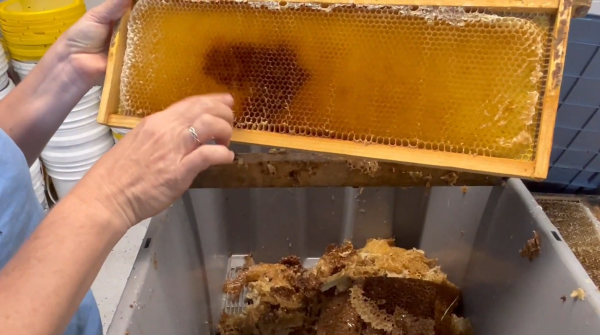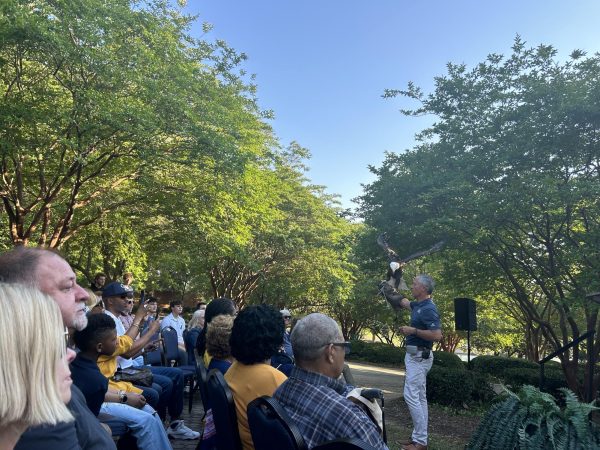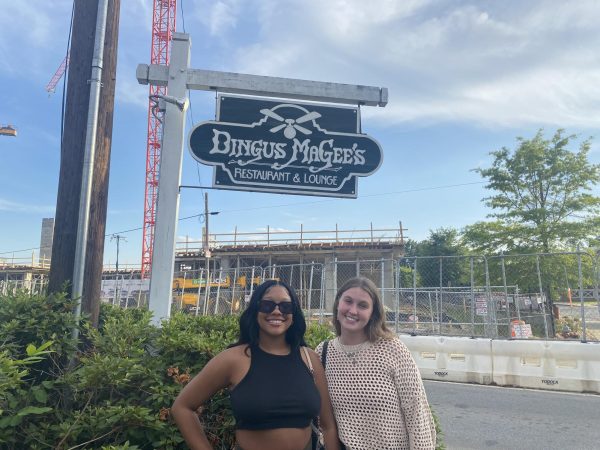Legislation addresses medical marijuana
March 12, 2015
Three bills addressing medical and recreational marijuana use are currently being entertained in Georgia’s state legislature, the most promising of which, Haleigh’s Hope Act, passed the House with an overwhelming vote of 158-2 on February 25.
What is it?
According to State Representative Jan Tankersley’s monthly legislative report, Haleigh’s Hope Act would authorize the use of medical cannabis to treat certain conditions. Haleigh’s Hope Act, also known as HB 1, would provide immunity for individuals in possession of cannabis oil legally obtained in another state. Cannabis Oil must contain no more than five percent THC and qualifying individuals must possess no more than a maximum of 20 fluid ounces.
“A lot of parents are concerned about giving their children some of these high doses of CBD [Cannabidiol] oil, because those high doses can contain and do contain THC,” Nicole Withers, the Administrative Coordinator for Office of Alcohol and Other Drugs Programs at Georgia Southern University, said.
“The one they’re trying to get passed in the house… that would make parents feel better like ‘my kid’s not going to get intoxicated taking this medication’… it would not cause the psycho-activity,” Withers said.
Qualifying conditions under HB 1 include cancer, Multiple Sclerosis, seizure disorders, Amyotrophic Lateral Sclerosis (ALS), Crohn’s disease, Parkinson’s disease, mitochondrial disease, Sickle Cell disease and Fibromyalgia.
HB 1 would also require that potential patients register with the Georgia Department of Public Health and be placed on the “Low-THC Oil Patient Registry,” receiving a registration card that exempts them from prosecution.
What is happening?
HB 1 is now under consideration in the Senate where two competing bills are making headlines. SB 185 would create clinical trials for cannabidiol products, such as the low-THC oil in HB 1, to treat people under the age of 18 who suffer from medication-resistant epilepsy. It is estimated 50-100 children will qualify for the trials created. Many organizations in support of HB 1 are saddened by the restrictions imposed by SB 185.
“SB 185 is not an acceptable path forward,” the Epilepsy Foundation of Georgia said. “HB 1 gives epilepsy patients of all ages an option for medical cannabis, and it will bring home to Georgia the families who have been forced to leave our state in search of treatment.”
Advocates of HB 1 say the senate version would essentially gut the measure passed overwhelmingly by the lower chamber last week, the AP reports.
“I think that if researchers can keep trying to find ways to use CBD without having THC in it, that will help get medical marijuana pushed. I think the concern is giving kids THC,” Withers said. “You don’t want kids to become dependent on THC or have their developing brains affected in any kind of way.”
With either measure, Withers anticipates a student would need to show a prescription or other proof of medical need if in possession of CBD on campus.
Any likelihood of recreational legalization in Georgia?
Much more liberally, SB 6 provides for a full recreational legalization of marijuana in Georgia. It is not expected to pass. The bill’s Sponsor, Curt Thompson, says legalization makes marijuana less of a gateway drug, helps combat organized crime and will provide tax revenue for education and transportation infrastructure.
“You’re looking at $200 million in additional revenue. It’s already a product that is Georgia’s largest cash crop. We can pretend it’s not, but it is,” Sen. Thompson said in a WRDW, Augusta News, press release.
Colorado netted a total of only $60 million in 2014 according to Politifact.com, although that number would change dramatically with differing tax methods.














